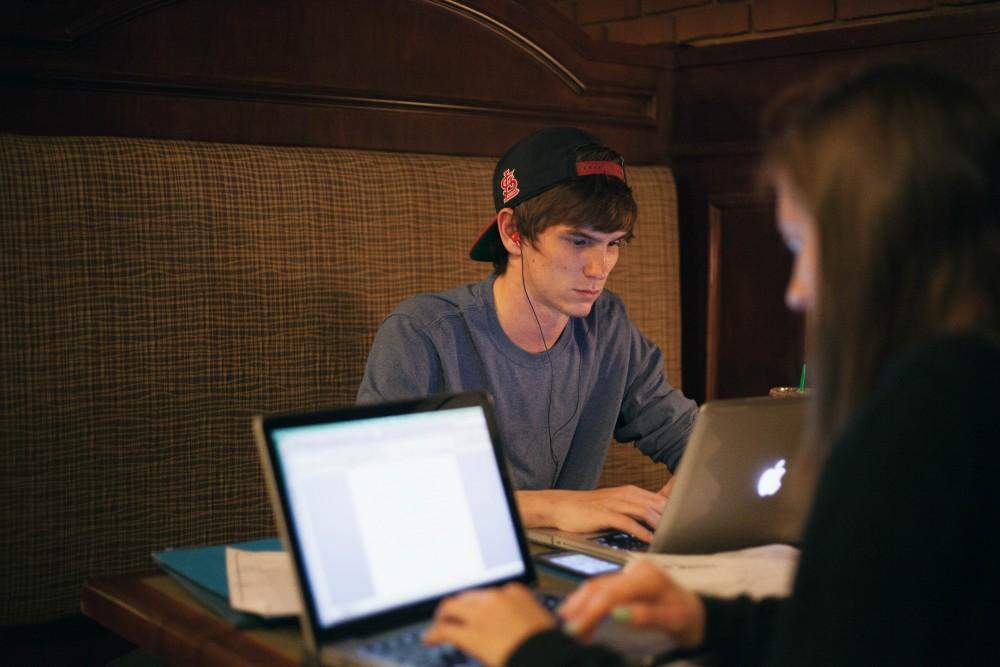To many students, Wi-Fi on campus isn’t what it used to be. Whether they were finishing up a paper due thirty-seven minutes later, in the middle of a game, or streaming the latest show, students will tell you that the Wi-Fi seems more unstable than usual this fall.
“I keep losing connection in class, and if Google Drive didn’t autosave, I would’ve lost a ton of essays and work,” said sophomore Edgar Haro. “Last semester, the Wi-Fi worked in my room. Now I have to work in other parts of my dorm house, it’s annoying.”
“I will have to reload the page that I am working on at least 5-6 times before completing the assignment because the wifi has cut out so many times,” noted junior Haley Hill.
For Jim Huddleston, who’s served as Principia’s Information Technology (IT) director for eight years, it often comes down to reaching out and asking for assistance. Any community member who encounters specific Wi-Fi-related issues should reach out to IT as quickly as possible.
“The more information you give me, the better, because we want to help,” he said. “If you respond to me saying the Wi-Fi is bad, I’d like to know more about your situation: where were you? What were you doing? At what time was it? I’m trying to get information to narrow down what I’m looking at.”
There are multiple Wi-Fi access points located in each campus building. The idea is to make the connection as reliable as possible. But if a person uses multiple devices at the same time, this situation may impact another person’s ability to access the internet – especially in Maybeck buildings where the thick concrete walls aren’t conducive to wireless communication.
“Imagine the access point is down the hallway, and your friend who’s in a room closer to this access point fires up a Roku, wants to watch something… It’s broadcasting a powerful signal that’s using a lot of bandwidth,” said Huddleston.
“The big change is the explosion of devices,” he added.
Laptops and phones aren’t the only tools that come in handy for students in their daily lives. Video game consoles, virtual assistants, streaming dongles like Chromecast or Fire TV, and smart light bulbs all impact internet speed. Most of these devices operate using 2.4 gigahertz (GHz) signals.
“The new login situation doesn’t affect the performance,” said Huddleston. “You log in once and if it’s only if you’re gone for more than three months that you’ll need to log in again.”
The college Wi-Fi network used to have a very simple password. But things changed over the summer, mostly for security reasons. The 10-digit code wasn’t safe enough to protect the campus from potential cyber threats.
“It was just wide open,” Huddleston said when asked about the incentive for changing the login procedure. “There was a ransomware incident at Lewis and Clark that was one more proof that the threat is real.”
The event he’s referring to happened in November of 2021, when Godfrey’s Lewis & Clark Community College had to close for a few days due to a ransomware attack – with hackers blocking all devices while waiting for money. At Lewis & Clark, IT staff members put all systems offline to avoid the spread of any virus.
“There’s also a safety issue because now I can know who’s on campus,” added Huddleston. “Once you log into the wifi, we ask for your phone number, and so if there’s an emergency, a weather event, if you need to take cover because of a tornado or lightning, … we can now send that to guests on campus as well.”
And for those who’d like to get better cell phone service on campus, Verizon should be expanding its coverage to include the area soon, Huddleston noted.
Besides the new login procedure, a multi-factor authentication system called Duo was implemented this summer, once again to comply with best practices. Faculty and staff already use Duo if they’re off-campus to access campus-related platforms such as Canvas or BannerWeb. Basically, once they enter their Principia credentials from a computer off-campus, they’re asked to approve the authentication on their phone. The Duo procedure will soon be added for students. It’s one of the changes IT initiated, to make sure each community member’s information stays as secure as possible.
“And if something needs improvement, the best thing the students can do is provide us with information,” Huddleston said.


